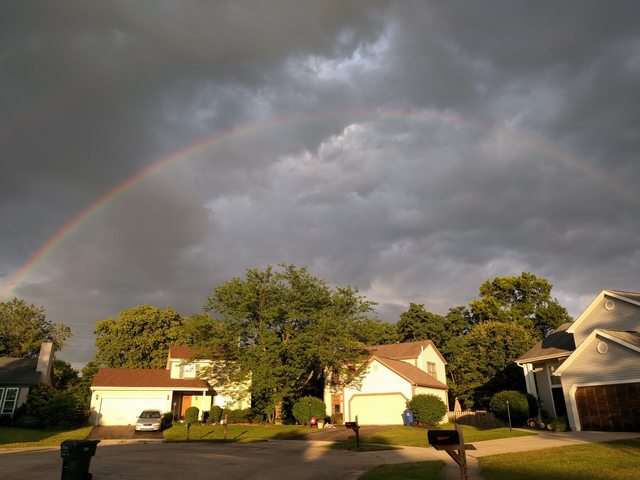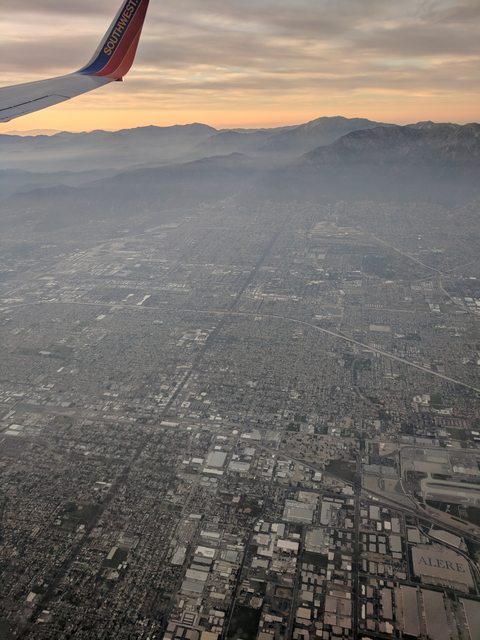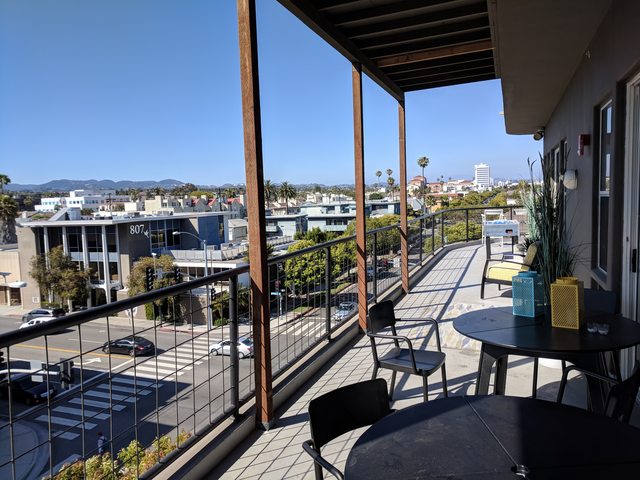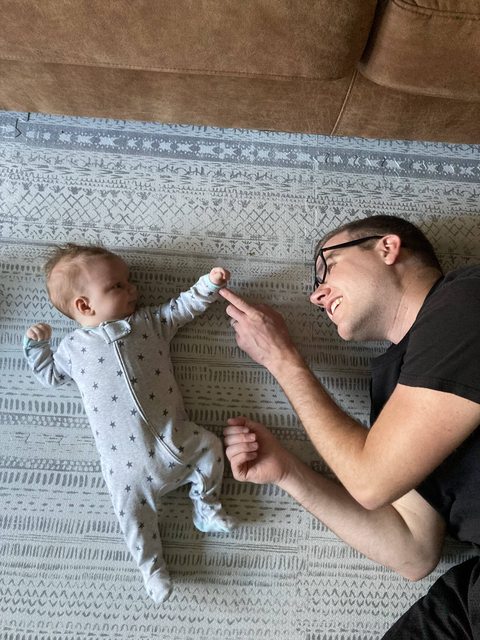Making Games
In March 2018, I had been a full-time indie game developer for four years. My heroes were Jonathan Blow, Lucas Pope, and Robyn and Rand Miller. I had 2,500 Twitter followers, an ambitious title under my belt with thousands of sales, and a free office in a hip coworking space near downtown Columbus, generously provided by some friends at a local game studio. I distinctly remember wondering why anyone would want to be something other than an indie game developer. I joked that I had a “disease” that compelled me to make games (my dad once told me that what people joke about speaks volumes). One month later, I was living in Los Angeles, working as a software engineer, and realizing I had just burned out of the game industry.
Breaking up
I left confident that I had done everything possible to make it work. I worked side jobs, emailed hundreds of people, administered a Discord server, created a killer trailer, streamed my development process on Twitch, posted on YouTube, posted on Twitter, posted on TIGSource, posted on this blog. Everything led up to a Kickstarter campaign, my last big effort to make something happen. It failed, I ran out of money, I got a job, and in a few short weeks “the industry” disappeared from my life.
I was shocked at how small the loss felt, considering that a month earlier I thought it was my life. The world suddenly looked very different to me. Some Twitter giants whose validation I desperately craved started to look less giant and more terminally online. Gaming as a whole looked a lot smaller to me. In real life, no one—not even gamers—had any idea who Lucas Pope was. It felt freeing to stop trying to enter that hallowed circle of indie heroes. No one cared that I had been rejected. Why did I want to join that club in the first place?
My new roommate in LA was something of an industry insider and was more in touch with mainstream gaming, and I started to see what gaming was really like outside the indies who I pictured as boldly advancing the art form. Some anti-gaming clichés I had railed against and rolled my eyes at started to ring true. My indie aspirations began to seem idealistic and naive. Why had I tried to make personally meaningful art and make money from it? Isn’t that a contradiction?
In some ways, the big AAA companies were more intellectually honest than I was. Their goal was simple: make money. By contrast, I was trying to fulfill my own wishes, make my own dreams come true, and also make money. You might even say the big companies cared more about gamers than I did. They were laser-focused on giving players what they wanted. Meanwhile, I was somewhat focused on that, and more focused on making whatever I personally thought would be cool.
Making something cool and making a sale are each separately about as likely as getting hit by lightning. So why did I torture myself trying to make lightning strike twice at the same time? Why did I ever want to make games as a career in the first place?
Why games
Six months later, through a miraculous series of events that I can only attribute to God, parts of my brain started to connect that had never been connected before. I started to realize my childhood wasn’t as great as I thought it was. Somehow I had always known it, but I was also discovering it for the first time. I could physically feel changes happening in my brain. It felt like I was reconnecting to a detached corner of my mind that had never matured beyond eight years old. One year later I had a flashback to a traumatic childhood memory that I never knew about before. I didn’t even know that kind of thing was possible.
Following these revelations, I started to look at games differently yet again. I realized that game development had served as a coping mechanism for me ever since childhood.
Think about it: you get to be the master of your own universe! The computer only ever does exactly what you tell it to; you have ultimate control over everything. Nothing ever surprises you, it’s perfectly safe. And playing a video game lets you escape your world, but creating one does that and simultaneously lets you feel accomplished in the real world. Top it all off with the dopamine rush of finally seeing your code work after hours of frustration, and you can self-medicate any problem away with game development. I suspect many people use it this way unknowingly.
My obsession with game development peaked around age twelve, which I now realize coincided with the loss of all my friends at the time. I spent every free moment in front of the computer. I checked out massive reference manuals from the library and miserably slogged through them. My mom became worried and limited my screen time to two hours a day, so I wrote code on paper so I could type it in faster during my time window. I quickly progressed from simple 2D games to a custom full-blown 3D software renderer. None of this is normal twelve-year-old behavior.
When I realized all this for the first time sixteen years later, it felt like all my hard work and perseverance turned out to be just a coping mechanism instead of a virtue. A flaw instead of a strength. I hoped there was something more to games than that for me, but I didn’t know what it was. Was it all just trauma? Why did I ever want to make games, really?
Insecurity
I remember preparing to show my janky 3D game to an older kid who I looked up to. It happened at a graduation party (no idea how… did I haul my PC there?) I had spent probably thousands of hours on this game. Barely anyone had seen it. I mostly tried to hide it from my parents. But someone had to see this thing, and now I had a thirty-second window to show this guy my world. Surely he would get it. He plays video games, right?
I think he was genuinely impressed. We talked about it for maybe five minutes before he had to wander off and talk to someone else. Kudos to him, he was probably about sixteen, and five minutes is actually a long time to humor someone. It went as well as I could have hoped, but still felt empty and underwhelming. Thousands of hours, thousands of lines of code, all for five minutes of interested nodding and a “Wow man, that’s pretty cool, you should keep working on it.”
Part of me wanted to scream, “Are you kidding me? I’m thirteen and I know how to build a binary space partition tree!”
But I knew not to say something so egotistical out loud, and I also knew that nothing that kid could say would be enough. That was probably the last time I touched that game.
The next time I tried to share with someone, it was through this blog. The mindset on display in this blog is essentially the same as thirteen-year-old me. Just scroll back a bit and you can easily discern a deeply insecure, self-deprecating, occasionally humble-braggy tone that screams “do you see me?”
The answer to that question was a resounding “No” when my Kickstarter failed in March 2018. I was used to it at that point. I knew the campaign would fail, even though it was such a notable outlier. How many Kickstarter games have you seen with working online multiplayer and a custom 3D engine written from scratch, all made by one guy?
But no one took notice because being created by just one guy is not a selling point for a video game. No one is under any obligation to care that I built a novel geometry-based text rendering system and a handmade font designed specifically for it. You care if the game provides an experience you’re interested in. My Kickstarter was 20% “here’s a cool experience you can have” and 80% “do you see what I can do?”
But there had to be something driving me other than pain and insecurity. At some point during the pandemic, I still wasn’t healed yet, but I wanted to dip my toe into games again and find out if anything else was there.
I tried Unity. Created an account, signed the EULA, downloaded the downloader, selected a release channel, finally installed the dumb thing, and watched it crash instantly.
I tried Unreal. Same process, but this time I had to leave the editor running overnight just to open the default scene with a cube.
Each attempt left me exhausted and wondering, “What’s the point? I spent 110% of my effort on this for years and couldn’t make anything good. How can I expect to do any better now in my spare time?” And I still didn’t know if I should even pursue it at all, or if it was just a crutch I had to let go of.
Being known
When that kid listened to me for five minutes and walked away, what hurt was not the lack of praise, but the lack of knowing me. No one knew what was going on in my world at that time.
I only realized my need for this part of my life to be known a few days ago, when I read this verse where God speaks to Jeremiah:
Before I formed you in the womb I knew you
I had read this before, but this time it revealed something new, because that’s always how reading the Bible works. I drove around my neighborhood a few times, sat out on my porch, and burst into tears. This is the kind of knowing I really need, and that I’ve finally found.
Maybe I have everything I need now, but it’s still nice to be known by people too. We’re designed to live that way. That’s why I wrote this blog post. Now you know me a little bit, both the good and the bad.
I’ve found the answer to the question “Why make games?"—to be known by people. Not because I need to be known (that’s already done), not to make a name for myself or make myself great, but to share with people a piece of myself and what I think is cool. Art is a relationship between the artist and the person enjoying the art. And I hereby re-adopt my idealistic indie worldview: games are art!
Recovery
About six months ago, I started messing with Godot. It is the antithesis of the two mainstream engines with their licensing and account systems and downloaders. It’s open source and lightweight, but still packs a punch with solid technology and amazing features. In two minutes, I had it up and running with a fairly complex example scene. I fell in love with it. I’ve made several minor contributions already.
Since then I’ve been working on a new project! I’m still a work in progress, I still have to fight the urge to prove myself sometimes, but I’ve started to recapture the joy of game development. Will I finish this project? Will I ever go full-time again? Will I ever release another commercial title? I don’t know. Whatever happens, it will be a great journey.
Thank you for being a part of it.
Also, check out my amazing son Titus!!



